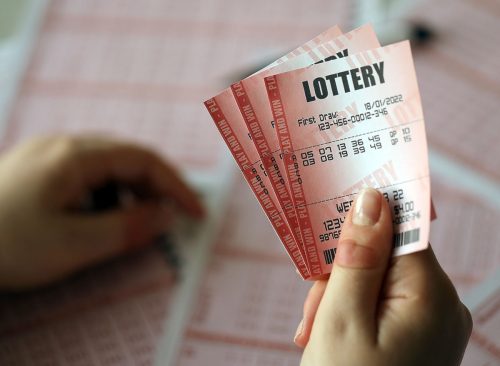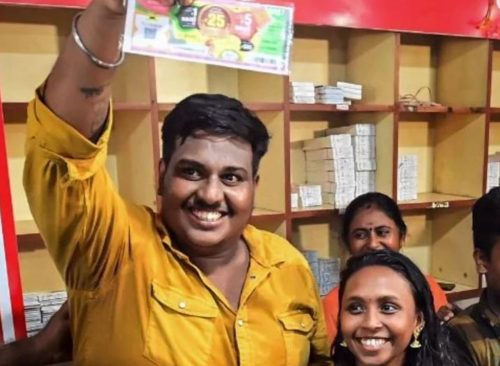Here’s What Happens After You Win Millions, According to Former Powerball Winner
"Some people viewed me as a walking, talking ATM machine.”
Lottery mania is here again. Just months after a record MegaMillions jackpot stoked a minor frenzy, the top Powerball prize has surged to $1.9 billion. And although many are lining up to buy a ticket and a shot at impossible odds, some are warning that you might want to stay away.
It’s no secret that winning the lottery can be a nightmare come true—past winners of big jackpots have seen families torn apart, financial reversals, and in at least one case, being run out of town by neighbors begging for money. Iowa resident Timothy Schultz won $29 million from Powerball in 1999. He told Fox News recently about how winning big can change life for the worse.

“When you win the lottery, the exhilaration is through the roof; it’s one of the most potentially life-altering things that can happen,” Schultz told Fox News Digital. “One minute you have one life,” and then “your world is turned on its head. The euphoria is real, but it eventually subsides.”
Money can ease financial stress, Schultz said, but “money doesn’t change who you are as a person. If you were unhappy before, you might be unhappy after.” He added: “There are some very wealthy people in the world who are extremely unhappy. Money can be positive, but it doesn’t necessarily fix all problems.”

Schultz said that after winning the lottery, he found it hard to trust people. “Most people were supportive and happy for me, but I did receive stacks of letters from people asking for money,” he said. “It was difficult to trust new people — that they didn’t want me for the wrong reasons. It felt like some people viewed me as a walking, talking ATM machine.”
Schultz said he did “quite a bit” to help others. “Thankfully, most people wanted me for the right reasons, but there was a learning curve in how to deal with that sort of thing,” he said.

Schultz stressed that money can’t change everything. “Our health should not ever be taken for granted,” he said. “Money can certainly help, but it can’t fix everything.” Today, Schultz has a YouTube account where he interviews other lottery winners.
“Every lottery winner is different, but I have noticed some common themes,” he told Fox Business. Some people can become larger versions of themselves. “For example, if you are into the church, you may decide to build one,” he said. “If you’re into movies, you may decide to produce a film. If you enjoy fishing, that may become a full-time hobby.”

And some people become pretty unhappy. In 2006, Missouri resident Sandra Hayes won $6.5 million in Powerball. She soon experienced what Schultz feared—some people close to her wanted to get closer to her money. When she would go out to eat with friends, some would say that didn’t have money when the check arrived.
“I had to endure the greed and the need that people have, trying to get you to release your money to them. That caused a lot of emotional pain,” Hayes told The Associated Press. “These are people who you’ve loved deep down, and they’re turning into vampires trying to suck the life out of me.”
RELATED: 10 Most Embarrassing Ways People Have Gone Viral This Year

But few lottery tales are as cautionary as that of Anoop Babu, who was nearly broke and raided his two-year-old son’s piggy bank for money to buy a ticket in India’s state lottery. It cost 50 rupees, about 60 cents. Then he won the jackpot: 250 million rupees (about $3 million U.S.). His phone began ringing off the hook, people started showing up on his lawn begging for money, and he was harassed on the street.
In a Facebook video, Babu said he was so disturbed that he was planning to leave town. “I went and stayed at my relative’s house, but somehow people found that place too and came there,” he said. “Now I came to my house as my child is unwell. I cannot even take my child to hospital as people are coming and seeking help.”














